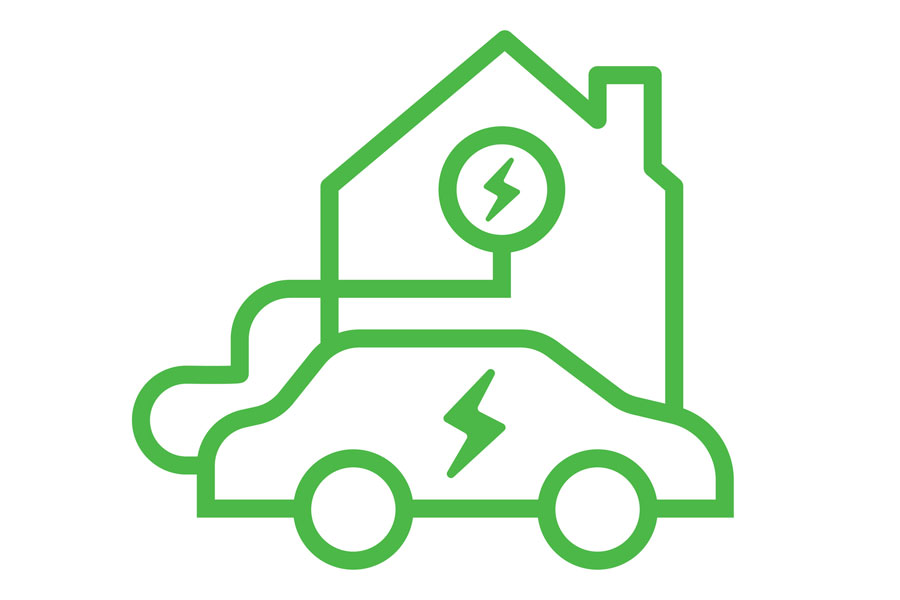Recent deals with Tesla by Ford and GM, along with expansion of the nation’s charging network, have made filling up your electric vehicle (EV) more convenient, but that convenience comes with a price.
Just like commercial gas stations need to make a profit in order to stay in business, EV charging stations need to generate a return on investment (ROI) along with the electricity they sell. That means when you use a commercial EV charging station, you’re not only paying for power, you’re also lining the pockets of the investors and employees with the markups they add.
Since having your own gasoline or diesel pump at home isn’t an option for most people, drivers of internal combustion vehicles are stuck with paying those operating costs at a local service station. But EV drivers have a better, lower cost option—charging their vehicles at home.
Home Charging vs Commercial Stations
The cost of charging your EV depends on three things—speed, time of day, and location.
Charging speed is a function of the type of charger. Level 1 chargers use standard 120-volt household current and take several hours to reach a minimal charge level. Unless you have a few days of no or minimal driving to leave your car on the charger, you’ll never get more than a few miles worth of juice from a Level 1 charger.
Level 2 chargers are much faster and can fully charge an EV in a couple of hours at most. But they require a dedicated 240-volt circuit, similar to an electric range or air conditioner. Installation cost can range from a few hundred dollars (in easy-to-access locations, especially in newer homes that have pre-installed conduits) to several thousand if power upgrades or remote locations are needed.
Level 3 DC fast chargers are super-fast due to 480-volt DC circuitry. They can charge an EV battery to 80% in as little as 15 minutes. But due to the heavy-duty circuitry and equipment required, these are only found at commercial and industrial charging sites.
Electricity cost varies by time of day with rates highest when demand is high and lowest when it’s low. Like when everyone’s asleep. Rates can also vary seasonally, with higher rates typically in the summer when air conditioners are running full blast.
Just like in real estate, location matters when it comes to EV charging. Electricity costs vary by geographical area with rates typically lowest near primary energy sources (mainly coal, natural gas, and hydro).
The actual location of the charging station affects charging costs, too. Like it costs more to eat out than cook at home, commercial charging stations charge more than it costs to charge at home.
Convenience also plays a big role in EV charging. With a home EV charger, you can juice up your EV while you eat, watch TV, or sleep. Commercial charging requires a trip to a charging station and waiting, sometimes in line, sometimes while other drivers wait on you impatiently. And that can lead to problems.
While most EV owners tend to be laid-back fans of fine wine and avocado toast, as more tightly-wound people hop into EVs, that demographic is changing. EV drivers are even succumbing to road rage and that can manifest itself in ugly ways as a recent shooting at a Colorado Tesla charging station proved.
So if cost and convenience aren’t enough motivation to consider a home EV charging station, maybe self-preservation will. And when you’re ready to act, Allstar Electrical Services can help you find the home charging solution that’s best for you.
Allstar Electrical Services has installed dozens of EV charging stations in homes, parking garages, and at businesses with multiple EV fleets. We’ve helped Coloradans increase efficiency while adding comfort and convenience to their homes and businesses for over 20 years.
For an estimate on installing a home EV charger or to learn more about the many ways upgraded electric services and emerging technologies can improve your home or business, visit our website or give us a call at 303.399.7420.


